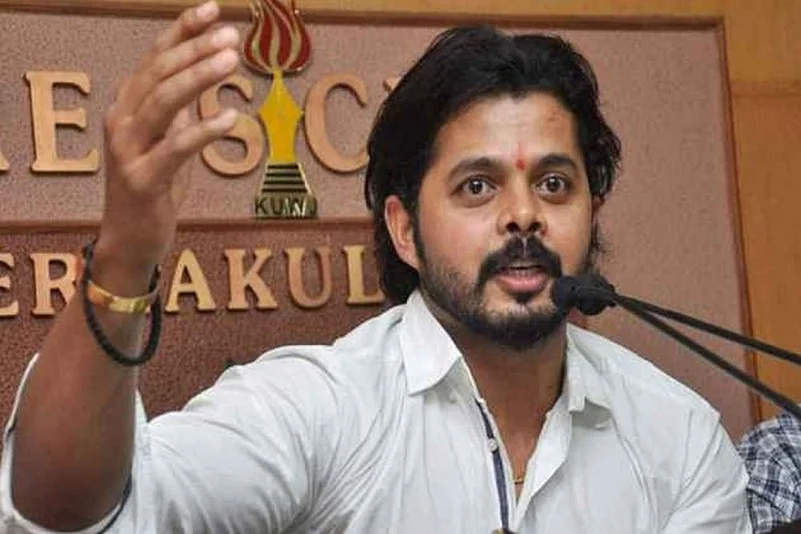The Supreme Court, on Friday, lifted the life ban imposed by a BCCI disciplinary committee on cricketer S Sreesanth for his alleged role in a spot-fixing scandal that had erupted during the Indian Premier League (IPL) series in May 2013.
The court has found merit in the findings of the BCCI panel against the 36-year-old Sreesanth while directing the cricket administration body to decide on the quantum of punishment to be awarded to the controversial cricketer within three months. The BCCI will have to arrive at a decision after hearing Sreesanth afresh.
The apex court bench of Justices Ashok Bhushan and KM Joseph has, however, clarified that its verdict shall have no effect on the criminal proceedings pending against Sreesanth in the Delhi High Court, where the Delhi Police has challenged a trial court’s order which had discharged 36 people, including the cricketer, in the IPL spot-fixing case.
Reacting to the development, the Committee of Administrators (CoA) chief Vinod Rai hinted that the issue of Sreesanth's ban might come up during the next meeting, scheduled for Sunday.
"Yes, I have heard about the Supreme Court order. We will need to get the copy of the order. We will definitely take up the issue at the COA meeting," COA chief Vinod Rai told PTI.
The apex court had, on February 28, reserved its judgment on Sreesanth’s plea against the Kerala High Court’s verdict that had reversed the decision of August 7, 2017 by a single-judge bench of the court which had lifted the life ban imposed on the cricketer.
During proceedings on Sreesanth petition in the apex court, his lawyer, senior advocate Salman Khurshid, had argued that the cricketer was still “loyal to the BCCI” and that the life ban was “completely unfair” since there was no evidence to conclusively suggest that spot-fixing had indeed happened during the match between Rajasthan Royals and Kings XI Punjab. The BCCI had countered Khurshid’s contention by stating that the action it took against Sreesanth was “sustainable under the law” and as per the rules of the cricketing body.
In his submissions before the apex court, Sreesanth had said that he had confessed to his alleged role in the spot-fixing scandal “under duress” as the Delhi Police had “continuously tortured” him in custody.
The Delhi police investigation into the spot-fixing scandal had claimed that Sreesanth, a part of the Rajasthan Royals IPL team, received Rs 10 lakh as bribe for conceding 14 runs to Kings XI Punjab in a single over during a match played in Mohali. The police had also placed on record tapped telephonic conversations that seemed to suggest that money was offered to the cricketer as bribe to concede runs.
Sreesanth had urged the apex court to grant him relief and pleaded that though his international cricket career may be over, he wanted to pursue domestic club cricket in India. Khurshid had also told the court that the evidence against Sreesanth was “circumstantial in nature” and that while the BCCI counsel claimed that there was evidence to suggest that money was offered to concede runs, there was nothing to conclusively prove that the money was received too. Khurshid had also drawn the court’s attention to recordings of the match and its commentary to show that while Sreesanth allegedly was paid to concede 14 runs, he had actually given away 13 runs in the said over and that the commentary during the match proved that the cricketer had not bowled loose deliveries.
















